There is a persistent myth that continues to make its way around homeowner circles that as a business owner it is next to impossible to get a mortgage. Some people even believe that you will be disqualified immediately if you bring less than a 25% down payment to the table, but how much of this information is actually true? As a small business owner, what sort of hoops will you need to jump through in order to qualify for a mortgage?
The answer to that question depends on three main factors: Your business, your personal financial situation, and your overall creditworthiness.
The Typical Mortgage Approval Process
For most people the process for obtaining a mortgage is fairly straightforward: You submit your financial information, provide your lender with your recent pay stubs, a letter of employment and then offer at least 5% of the purchase value as a down payment.
This process is important because it helps ensure that only people that are financially capable of servicing a mortgage can obtain one. These strict, but achievable, standards for qualification are a big reason the Canadian banks managed to stay afloat during the 2008 financial crisis.
What You’ll Need as a Small Business Owner
Business owners are subject to a similar mortgage approval process, though you will be required to provide a bit more documentation to demonstrate to a mortgage lender that you are a suitable candidate.
Specifically, you’ll need:
- Two years worth of T1 generals: Your T1 generals are the documents your accountant files on your behalf when tax season rolls around. Your T1 generals will show how you are paid (salary, dividend, etc.) and where your income comes from.
- Two years worth of corporate financials: This provides your lender with an idea of how your company is doing, what sort of expenses you incur, and how viable your business is overall.
- Notice of assessments for the last two years: Most lenders will ask to see your NOA for the last two years. They’re looking to see what income you reported to the government. Earnings that have been realized, but not reported, will not be taken into consideration during this process. The NOA’s will also show if there is an outstanding balance owed to the CRA. Any outstanding tax balances must be paid before you will be able to take possession of your new home.
- Copies of your contracts: If you’re a contractor with a couple of larger contracts, the lenders may ask to see copies of these contracts. This demonstrates your income potential, and plays a similar role to the letter of employment non-self-employed applicants must provide.
- Documentation validating your position with your business: It’s one thing to say you’re a business owner, it is another thing entirely to prove it. Chances are your lender is going to want to verify that you hold the position within your business that you say you do. This documentation is also similar to the letter of employment non-self-employed applicants must provide during the application process.
If you’ve been a business owner for a while and can provide two years of verifiable income, the process should be quite straightforward. If not, your mortgage broker can look into other options that consider your down payment, business history, and some other intangibles that could help you obtain your mortgage.
What if You’re a Contractor?
Contractors are increasingly common (in Calgary especially) and are a unique case when it comes to mortgage applications. If you have moved from a salaried position to a contract, and the contract features a similar salary and similar responsibilities, the lender will likely only require proof of verifiable income (very similar to a typical salaried employee).
If your compensation is dramatically different (say your income has recently increased from $80,000 to $120,000 under your contract), the lender will look at the $80,000 when formulating their decision. Once you have two years of financials under your new rate, that will be the number the lender uses when considering your income.
When the Above Information Doesn’t Quite Cut it
It is not uncommon for new business owners or contractors to want to acquire a mortgage. However, the lack of history to the business complicates the process somewhat. Remember, a lender uses this qualification process to determine two things:
- Can you actually afford the mortgage that you’re seeking?
- What are the chances that you will be delinquent on payments or default on your mortgage entirely?
Unfortunately, no matter how lucrative and profitable your new business may be, the lack of history makes a lender a little leery.
Despite this temporarily working against you, you can still qualify for a mortgage, but you’ll need a few extra things to show your lender that approving you for a mortgage is a good financial move.
How to Make the Application Process Go Smoother
So, you’re a new business owner and life is good. You’ve got your eye on a great new infill in the Beltline and you’re ready to make the move. What now? With the help of a knowledgeable mortgage broker, you can help stack the approval odds in your favour.
Some things that can help your application are:
- Assets: Assets such as investments, vehicles, and cash can help tip the scales in your favour. The lender isn’t going to ask you to sell your car, but knowing that you have a paid off vehicle or two (and that they’re worth something) will help assuage their concerns regarding mortgage repayment.
- Down payment: If you’ve got a new business and a small down payment, you’re going to find it tough to get a mortgage at a reasonable rate. However, one thing that can play in your favour is approaching your lender with a large down payment. If you’re able to put 20% down (or more), the odds of you getting a favourable mortgage rate increase significantly.
- Other sources of income: If you have income coming in from secondary sources, such as investments or commission bringing those to the table will go a long way.
Stated Income vs. Verifiable Income
If you are putting at least 10% down on the purchase value, the lender may be willing to base its decisions on your stated income (versus your verifiable income). You will be subject to higher default insurance fees but should otherwise be able to obtain approval for a mortgage that suits your needs and goals.
A Good Mortgage Broker Makes This Process a Lot Easier
A good mortgage broker really can make the mortgage application process go more smoothly than if you went through a bank. Mortgage brokers have access to an entire suite of mortgage products offered by a variety of lenders (including all of Canada’s major banks).
Small business owners, in particular, can benefit from choosing to obtain their mortgages through mortgage brokers, since brokers can help you determine what sort of documentation and other proof you need to verify your income and obtain the mortgage you want.




